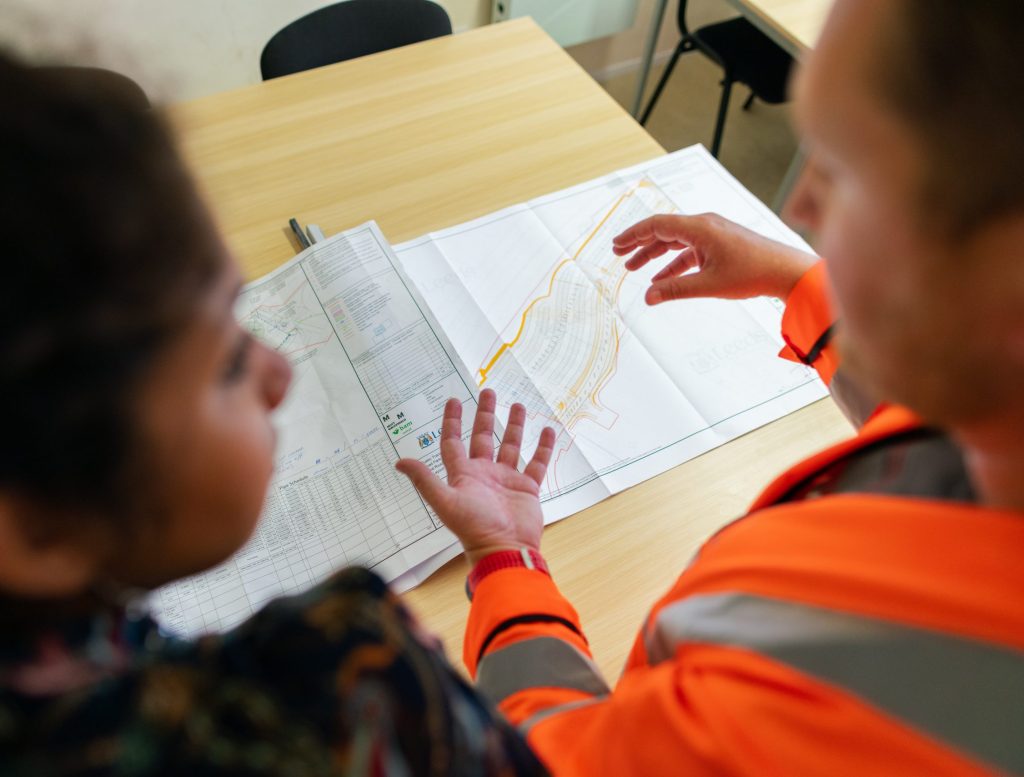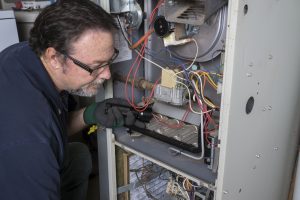If you enjoy mechanics, mathematics, and hands-on work, you might enjoy a career in the heating, ventilation, and air conditioning sector. HVAC technicians apply their knowledge of electrical design, building construction, and machines to install, troubleshoot, repair, and maintain HVAC components.
The HVAC career has been recommended globally. Fair wages, work flexibility and the ability to work in almost all sectors are just some of the reasons you should consider an HVAC career. However, most people who want to join the career often wonder how to get a job in HVAC. What if you have no experience? In this guide, we will discuss how to start HVAC career.
What is an HVAC technician?
An HVAC technician is a person who works in various industries to ensure that heating, ventilation, and air conditioning systems work optimally. HVAC technicians work in almost all sectors such as hospitals, industries, homes, buildings, schools, and even factories. Technicians also have a variety of options that they can specialize in including commercial refrigeration, solar panels, heating systems, and testing and balancing. As you can see, choosing a career in HVAC does not limit you from exploring various specialties and work sectors.
While you can choose to become either an HVAC technician or an HVAC installer, a mix of both is ideal. This will enable you to install and maintain HVAC components and become more marketable in the field.
What are the duties of an HVAC technician?
As we mentioned, HVAC technicians work with heating, ventilation, air conditioning, and cooling systems. Their daily tasks include installing, maintaining, repairing, and troubleshooting HVAC components. HVAC technicians may also be required to sell services to clients and maintain work records. The work of HVAC technicians is mainly technical, hence the need for training and experience. For instance, refilling refrigerants, changing filters, checking leaks in pipes, and evaluating HVAC system components are not duties that anyone can undertake.
How to get a job in HVAC
For you to start your HVAC career, you need to earn the required education. Luckily, you have different options, as discussed below.
1. Get your diploma
If you want to start an HVAC career, you must first earn a GED or complete high school. If you are sure that you want to explore the career while still in high school, start by taking courses that teach mechanical skills. Alternatively, you can attend a vocational school to provide you with valuable skills and information required in the HVAC industry.
2. Enroll in a training program
Once you complete high school, you are required to enroll in a training program. While you can attend college or university to get your certification, a certificate program is the fastest route and can be as short as 10 months. However, college degree programs include extensive elective study and additional general education, whereas certificate programs focus more on HVAC skills and knowledge. If you are looking for additional work opportunities after training, then consider higher degrees. This does not mean that certificate programs are ineffective, but you will just need to upskill while on the job.
3. Complete an apprenticeship
Wondering how to get an HVAC job with no experience? An apprenticeship is a great opportunity that allows aspiring HVAC technicians to get training in the field while also continuing with their education. While it is not mandatory, most employers prefer HVAC technicians to complete an apprenticeship. During the 3–5-year period, technicians get on-the-job experience. While an apprentice earns approximately half of what an experienced technician gets, the training helps them gain more qualifications. An apprenticeship serves as a training program substitute. As such, apprentices earn nationally recognized certifications once they complete the training.
4. Get state licensing
Once fully trained, HVAC technicians must get state licensing. While this varies among states, the EPA qualification is mandatory. Technicians can get the Type I Certification (small appliances), Type II Certification (cooling and high-pressure heating units), or Type III Certification (cooling and low-pressure heating units).
5. Get additional certification
Earning additional certification is not mandatory. However, it is a great way to distinguish yourself from other technicians who hold a basic qualification. These optional certifications differ in different regions. Additional qualifications that can catapult your HVAC career include a Ready-to-Work Certificate, a Senior Level Efficiency Analyst Certification, and an HVAC Support Technician Certificate.
What other skills should an HVAC technician have?
You might be an excellent HVAC technician. However, the lack of soft skills can derail your career. So, what are these skills that are beneficial for an HVAC technician?
- Customer service– HVAC technicians deal with customers daily. From answering their queries to visiting their homes, customer service skills are vital. HVAC technicians should also learn how to deal with upset customers. For instance, politeness and punctuality are just some of the traits that customers expect from the technicians.
- Math skills– From time to time, HVAC technicians calculate accurate load requirements to ensure HVAC components cool and heat efficiently.
- Attention to detail– The HVAC industry is quite technical. A small mistake can ruin the functionality of HVAC units. As such, HVAC technicians need to be attentive to detail in all tasks be it repair, installation, or even maintenance.
- Organizational skills– Companies require HVAC technicians to keep detailed records of the tasks performed. This includes the tasks undertaken in a given site, how long it took, and the equipment used.
- Physical strength– HVAC technician jobs are physically demanding. The job may entail lifting heavy equipment and spending lots of time on the feet.
- Time management– HVAC technicians are required to have time management skills. This is because they may be required to visit several sites in a day.
- Sales– You will be required to convince customers to purchase your services, hence the importance of selling skills.
- Communication skills– Technicians should have great communication skills. This is because they may be required to follow up with customers on tasks performed in person, via email or over the phone.
Summary
Still unsure of how to get a job in the HVAC field? Uncertainty is prevalent in any career field. However, with the right qualifications and skills, it should not be difficult to land your first job. An apprenticeship is also a great way to get the required work experience and earn a paycheck while at it.








